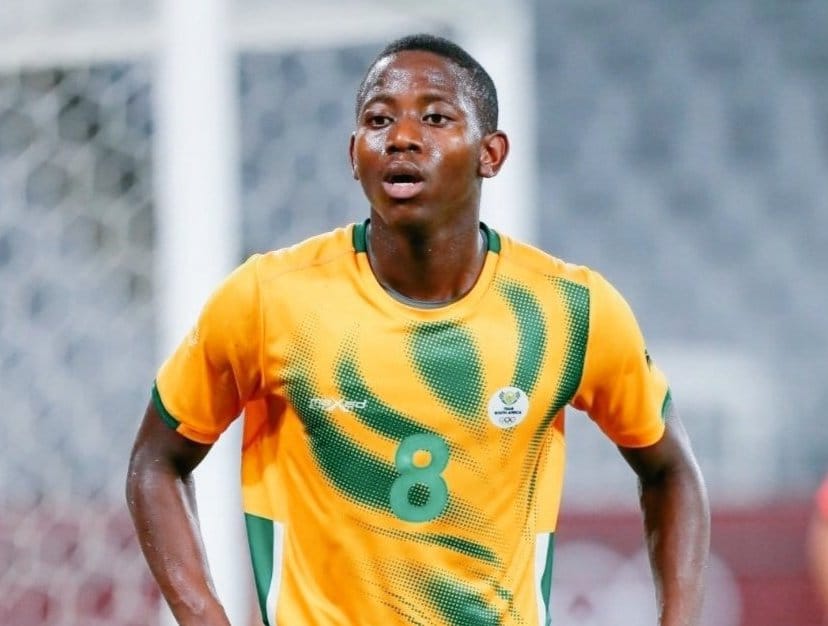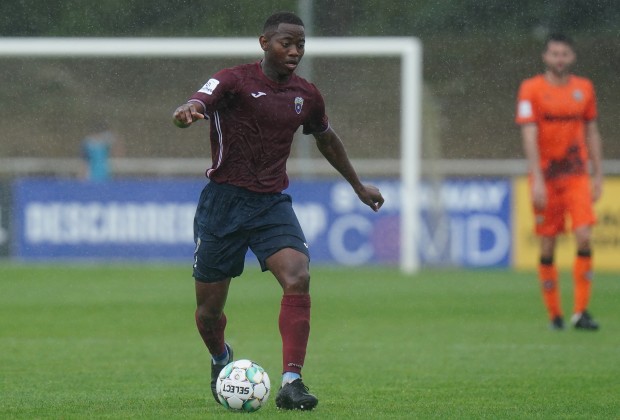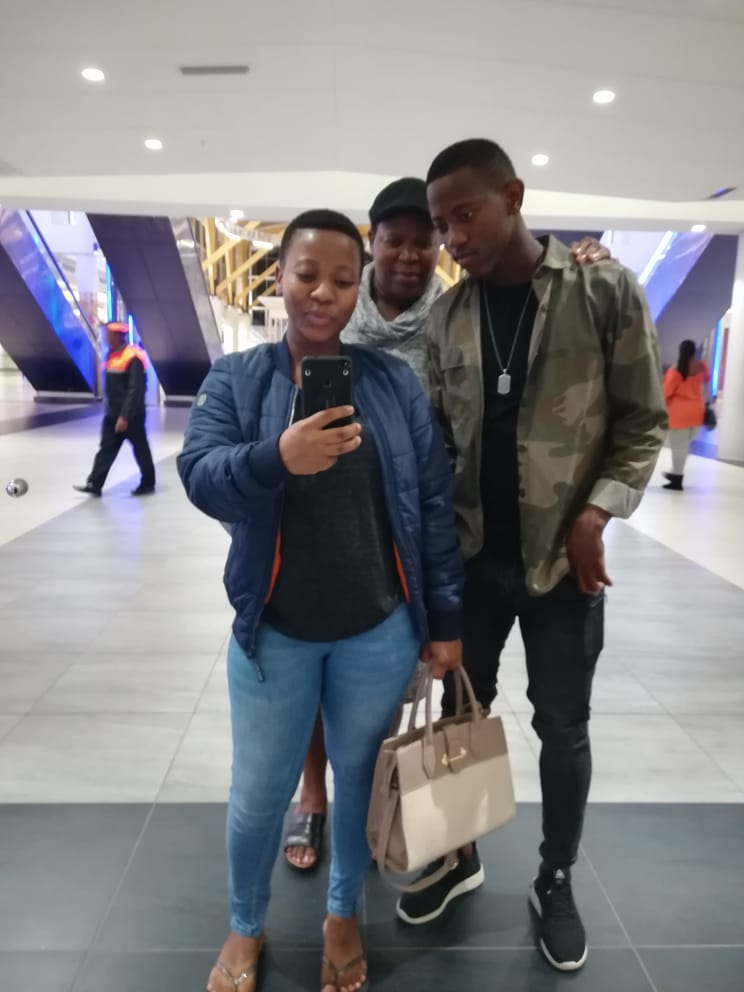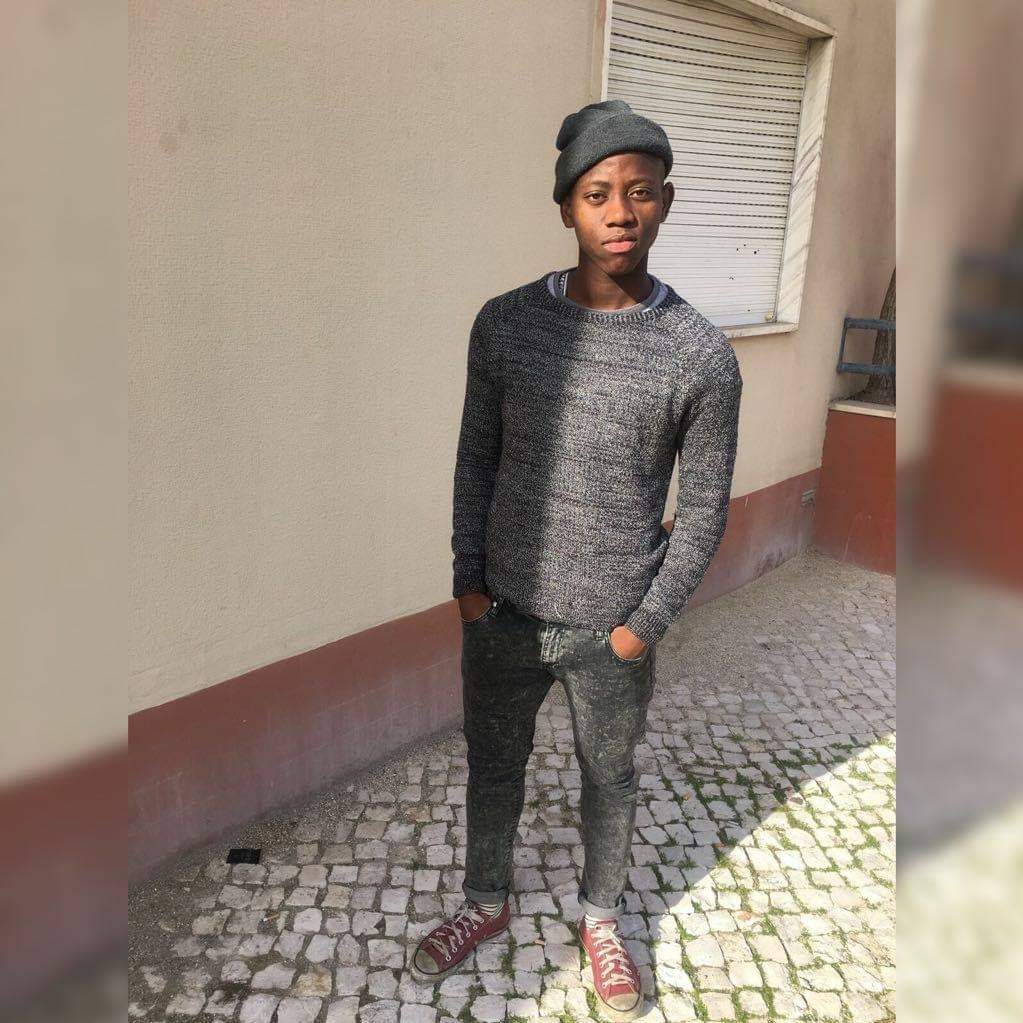The Portuguese dictionary that revived Thabo Cele’s European dream

Lebo Cele remembers that pocket-size Portuguese to English dictionary her younger brother, Thabo Cele, always carried around religiously like a bible.
Right in the heart of KwaMashu, in the midst of hard-nosed IsiZulu speakers, teenage Cele would carry that little wordbook dutifully.
“He carried that dictionary with him like a bible. At that time, there was no indication of him going overseas. We would take it and try to read it. None of it made sense. Funnily, he never said any of those words,” Lebo tells FARPost.
Tsepo Ntsoane, one of the coaches at KwaMashu All-Stars, gifted 16-year-old Cele two dictionaries in 2013.
“I happened to be in Johannesburg at the OR Tambo Airport, and I bought four dictionaries. Two of them were Spanish to English and two Portuguese to English. I gave Thabo the Spanish one and a Portuguese one, and I kept the other two for myself because I love learning languages,” Ntsoane tells FARPost.
The gift was accompanied by words that may have had no meaning to the KwaMashu-born youngster. After all, the furthest he had ever travelled at that point was Gauteng.
“I see you in Europe, I see you in a country that speaks one of these languages because that’s where you are going,” Ntsoane told his prodigy as he handed him the dictionaries.
Nkemelle ‘Rasta’ Ntsoane, the founder of KwaMashu All-Stars, knows exactly why his brother bought those dictionaries. The academy had over 30 young boys, yet he chose to give it to Cele.
Training would often start at 4 pm in the E-Section of KwaMashu, a township 12km north of Durban, and Cele would get to exercise at 3 pm juggling a tennis ball. For the next 45 minutes, while waiting for others, he would continue juggling the tennis ball.
“It was a distance of about 2km from his house in G-Section to where we trained, and he would be juggling a tennis ball, making sure he doesn’t drop it,” Rasta tells FARPost.
“On his way back home after the session, he would go the longer route, to jog and maintain his fitness. You wonder how many times he would have trained a day. He was so dedicated, and we thought it was an attitude that would make him very far in football.”
Rasta knew the boy popularly known as ‘Madlebe’; was destined for great things.
“I saw him play for Nduna Academy; I instantly felt he was ready to play in the ABC Motsepe League. I played football myself, so when I saw his ball control and passing, I knew he was an exceptional player,” he says.
During his 18-month stint with All-Stars, Cele would often arrive at home just before supper time, and while waiting for his bathing water to boil on the stove, he would be juggling the tennis ball in the kitchen.
“It would irritate my parents so much to see him do that in the kitchen,” his sister, Lebo, recalls. But she says they tolerated it because “it kept him off the streets”.
He light-heartedly says he doesn’t remember himself without that fluorescent yellow ball when asked about his tennis ball mischief in the kitchen.
“The tennis ball has always been part of my routine when I do extra training. It helps with ball control, concentration and other elements important in football,” he says.
Cele, who is still a proud owner of the dictionaries, does not necessarily need them anymore. He is a fluent speaker of Portuguese now. But, he remembers getting the prophetic gift.
“I got it as a present from Tsepo Ntsoane, and that was before I even knew that I would get an opportunity to go to Europe, so I would just read it at home out of just being interested,” he says.
By his admission, Portugal was merely home to one Manchester United star Nani and a Real Madrid ace Cristiano Ronaldo.
“I didn’t know a lot about Portugal then, bengazi nje ukuthi iCountry yabo Nani, Ronaldo [I just knew it was where Nani and Ronaldo came from]…things like that,” he tells FARPost.
The dictionary gift somewhat reignited his European dream. Two years prior, aged 14, he had joined Stars of Africa Academy in Johannesburg. The Farouk Khan-run academy is revered for producing exports for Europe.
“When I went away from Durban to Jo’burg, I started realising football was quite a big deal. While I was playing ekasi, I could see that people take football players seriously. They admire them a lot, and the possibilities that came with playing the game dawned on me when I went to Jo’burg.
“I saw players coming from the academy becoming professionals. They became role models to us because they were coming from the same academy,” Cele says.

Often, youngsters at the academy get to meet the academy’s alumni based in Europe. They also got to hear stories of how the likes of May Mahlangu, Bradley’ Surprise’ Ralane and Tokelo Rantie were shipped overseas without tasting action in the domestic topflight.
So, moving to the academy at 14 raised his hopes that he would also end up in the bright lights of Europe. Working with Khan, one of the country’s best youth development coaches, he knew the sky was not even the limit. He was destined for dizzy heights.
But that dream crumbled like a house of cards right in front of his eyes when he was told he did not meet the grade. It meant returning to KwaMashu to enrol at Vuyiswa Mtolo High School in 2013, to continue with his Grade 11. Even more complicated, this happened right in the middle of the year. How would he answer the question ‘so when are you going back’?
Every kid in the neighbourhood and parents knew he had moved to ‘Jozi’ where he was honing his skills to become the next big thing in football.
Ekasi’s rumour-mongers ‘needed answers’. It was an awkward scenario.
“He was very disappointed; he would get very frustrated. When he went to Jo’burg, he had so much hope, and when things didn’t work out, he would get so frustrated,” Lebo recalls.
It didn’t make matters any better that his family was not well up. Rasta remembers approaching a family in KwaMashu to assist him with soccer boots.
“I told them this was a boy who was so talented and would go very far. I assured them they would be proud one day when he makes it big,” he says.
His KwaMashu All-Stars became home to Cele when he returned from Stars of Africa.
“We would go for tournaments, and this young boy [Cele] would get so hungry, I didn’t have money to buy him food. The other boys were older than him, so they understood, but he was young. It was difficult,” recalls Rasta.
After a year and a half at All-Stars, he was snapped up by KwaZulu-Natal Academy.
“They stole him from us,” he says jokingly. “But look, we’re happy he was able to get the move we always thought he deserved. We’re happy he’s able to change the lives of his family. We use him as an example to the other kids because his story has a visible bottom. You can easily trace where it all started and why he is where he is.”
While at KZN Academy in 2015, Cele played a blinder in the Under 19 KZN International Tournament, catching the eye of scouts who took him to Real Sport Clube Massama for trials.

Armed with his Portuguese dictionary, he was off to Queluz, a city within the Sintra Municipality, on the Portuguese Riviera, in the Lisbon metropolitan area of Portugal.
“When I moved to Portugal, I would hear some of the words that were in the dictionary but with a funny pronunciation ha, ha, ha, and I couldn’t reply at all. But now I can hold a conversation without any problem,” says the 25-year-old, who was part of South Africa’s squad that competed at the 2017 Fifa Under 20 World Cup.
After a stint with Real Sport Clube, the former South Africa youth international promptly joined super-agent Jorge Mendes’ books. He then spent time with the Benfica B team before signing for Cova Piedade in 2018.
Cele reflected on sharing the dressing room with Atletico Madrid star João Félix during his spell with Benfica.
“I was playing with him regularly at Benfica B,” the former youth international said. “His career exploded in one moment. It’s also something inspiring. You play for many years, and suddenly, in six months, your life can change completely.”
Cele recently joined Polish outfit Radomiak Radom after parting ways with Cova de Piedade at the end of last season.
In Poland, Cele, who featured in South Africa’s Tokyo Olympics team, would like to improve his game.
“I would like to be a footballer who will always find a good solution. If the team has a problem getting the ball from behind, then through my play, I would like to make it possible for them.
“If there is a problem with pressing, I would also like to find my solution to it. The players I saw had this ability to notice many things on the pitch.”
Whatever the case, Cele continues to live his European dream.

